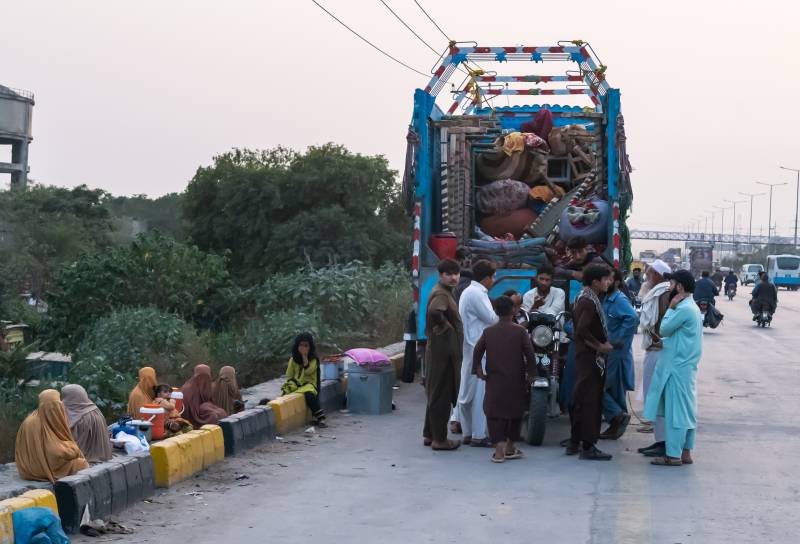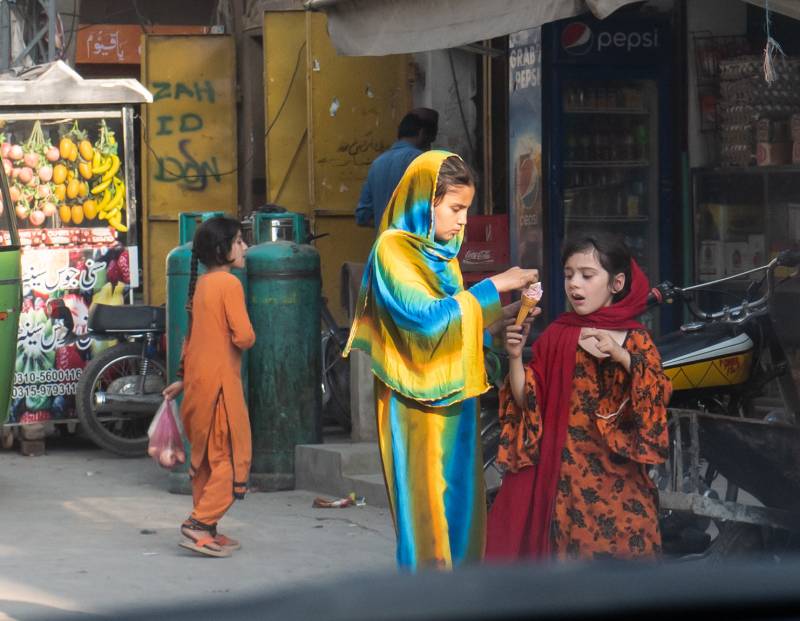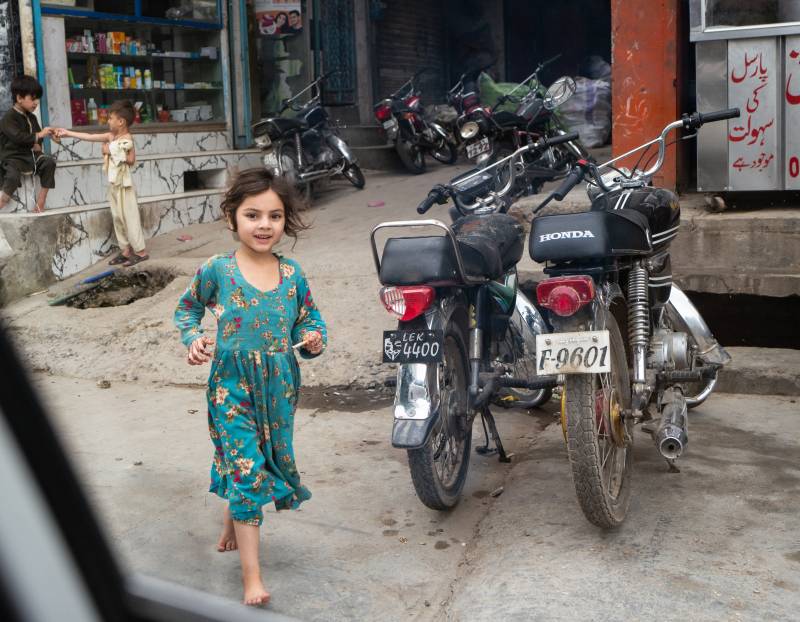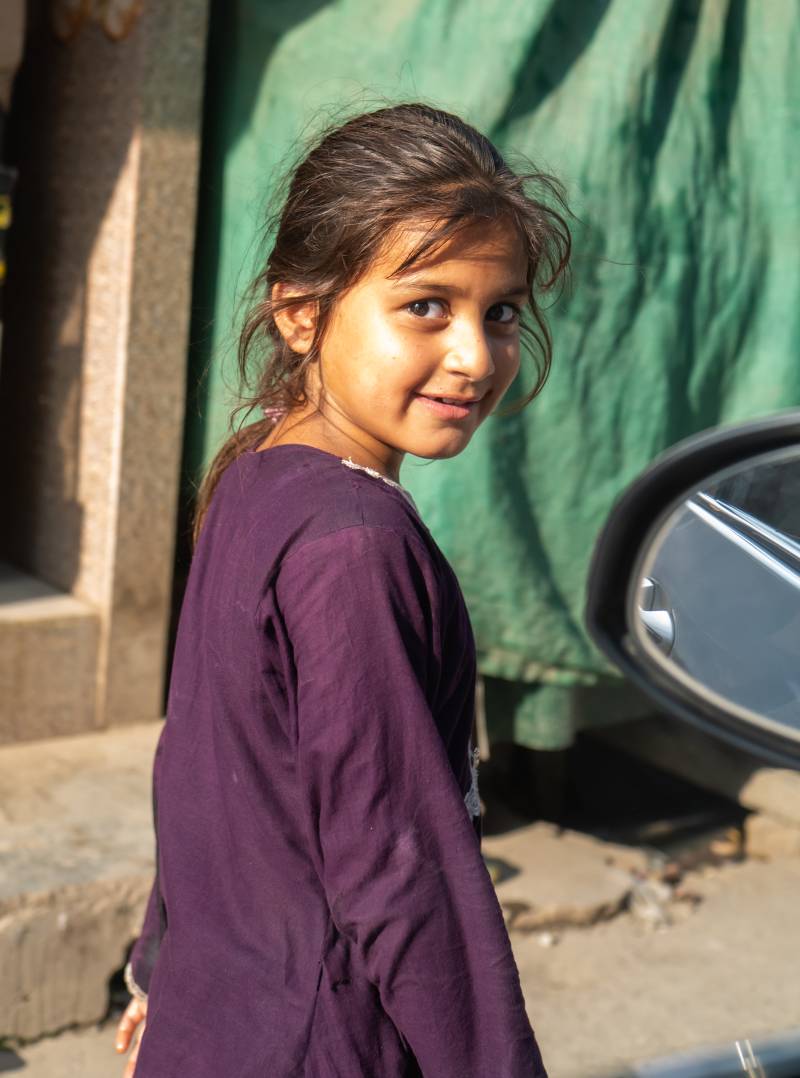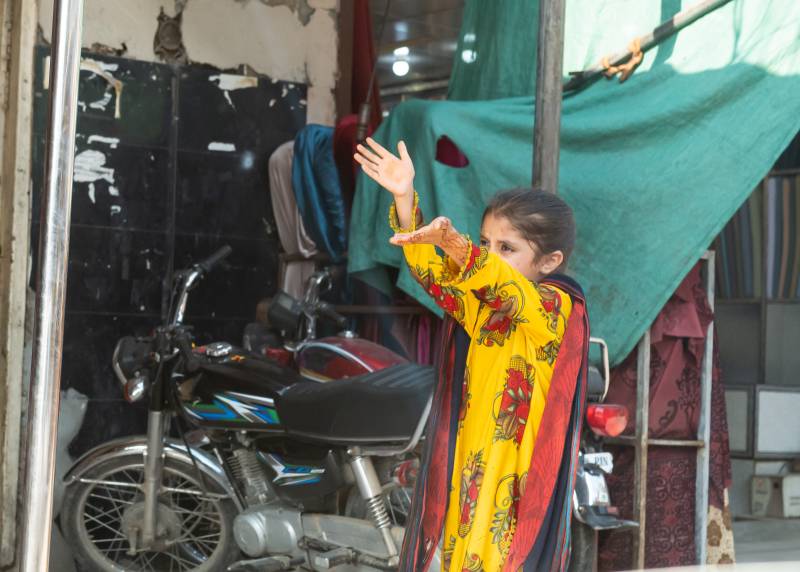A few days ago, I went to an area in Rawalpindi which I called ‘Little Afghanistan’. I have an interest in street photography and had been there before in search of interesting images. I was curious if the neighborhood had changed in the wake of Pakistan government’s ultimatum to afghan refugees to return to Afghanistan by the end of October.
I was saddened to see that the streets looked deserted with all of the liveliness gone; shops were forlorn; girls in their resplendent dresses and brilliant smiles did not run around; boys did not chase rickshaws to hitch a ride or play cricket in a side alley; old men in their flowing white beards did not wave at me because they weren’t there to gather around the fruit carts, exchanging jokes and stories; women in their brown shuttle-cock burqas had gone missing too.
‘Little Afghanistan,’ is a bland and boring place, bereft of colour and character, compared to what it was only days ago.
I asked a boy at a shop if all the Afghans had left. He was reluctant to talk to me and told me that he spends his days at the ground playing cricket and doesn’t know anything. But other kids, curious, had gathered around. One of the younger ones said that only the ones who have papers are left, all the others are gone.
Further down the road I spoke to two Punjabi shopkeepers, who were having tea outside their store. They told me that most of the Afghans had abandoned their homes and many were still leaving.
“It’s unfair. I had known these people for decades and now they’ve been forced to leave their homes. It will hurt business too,” one of the shopkeepers said. We agreed over the warm cup of tea they offered me that criminals, no matter their ethnicity, should be dealt with but it was wrong to expel people who have been living here for generations.
“Last night police came at two in the morning and ransacked the house above,” pointing to the dwelling above their shop. “Police has been harassing them. Often they take money from them and leave, but in the next raid they are rounded up in any case. Lot of people have left because they don’t want to face humiliation from the police. It’s become a money making thing for the police.”
They told me that on the main road trucks were still being packed for their journey to the border. I hurried there hoping to talk to people who were about to depart.
A truck was parked on the side of the road, about half full with sacks, the rest would soon be packed with people. Several middle aged men and children gathered behind it, a few women clad in burkas sat on the grassy ground by the road. As I got out of my car, they greeted me with curious looks and smiles. I told them that I was not a government official and just wanted to talk.
“Are you leaving for Afghanistan?” I asked no one in particular.
“What can we do, we have no option,” one of the men said. “Our ancestors are from Afghanistan but Pakistan is the only home we have known. I don’t know what I will do there.”
I asked him if he had any family in Afghanistan. He told me that all of his family was in Pakistan, but he knew some people in Kunduz. He had been to Afghanistan twice.
Another man spoke up, “I am forty years old and I have never seen Afghanistan. I was born in Pakistan. I was working in Sabzi Mandi and now suddenly I have to leave. My wife is from Pakistan, but she doesn’t want to go with me. What can I do?” I asked him if he knew anyone in Afghanistan and where will he go. “I don’t know anyone there, just the people who are going with me from Pakistan. I think they will put me in a camp there.”
A younger man said, “What are all these children going to do? If they have nothing to do they may join some militant organization.” Taliban had come out of refugee camps of the 1980s. Could Pakistan have given militants a rich ground for recruitment by forcing almost two million people back to Afghanistan?
I asked them if they would ever like to come back to Pakistan, “Of course, if the government changes its policy, this is our home. We will always love Pakistan.”
Torkham border where the Afghans are crossing over into Afghanistan has a long row of trucks packed with people, waiting to go across to an uncertain and harsh future. Frigid temperatures await them, with so many of them having nowhere to go.
Afghan refugees had built their lives in Pakistan and started families. Many of their children, including girls, were in schools in Pakistan. These girls will likely never go to school again, and will be confined mostly to the suffocating boundaries of their homes, seeing the world from behind a veil.
Pakistan has made the extremists coming from Afghanistan and conducting operations against its military as the basis for expelling Afghans. Clearly it has missed the mark by some distance; innocent children living in Pakistani cities have nothing to do with attacks by the militants crossing over from Afghanistan (many of whom maybe be Pakistanis in any case).
An inclusive and humane policy would have given Afghans who have been living here for a certain number of years a path to citizenship, making them part of the formal economy, and in the process creating much needed goodwill with Afghanistan. As things are, Pakistan may have created a humanitarian catastrophe on both sides of the border, reduced diversity in the country and deprived children of education. In the process it has added to a world that already reeks of injustice and hypocrisy.


